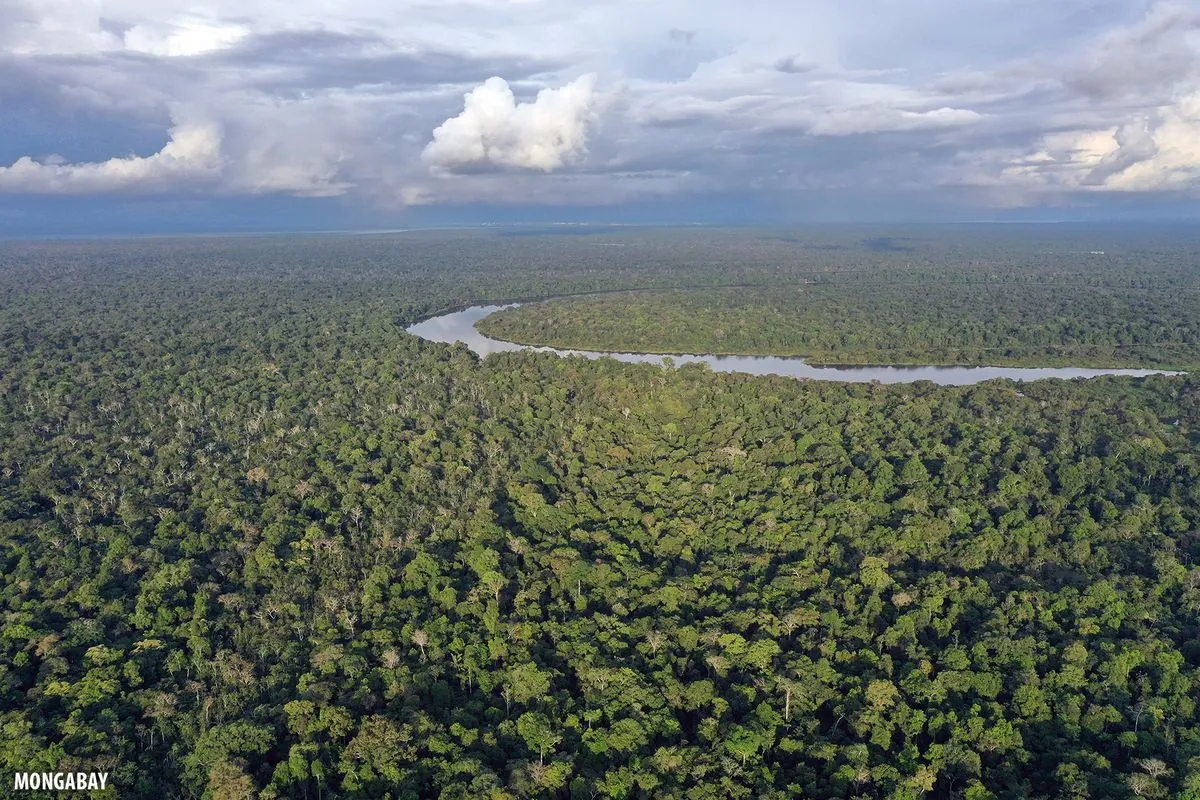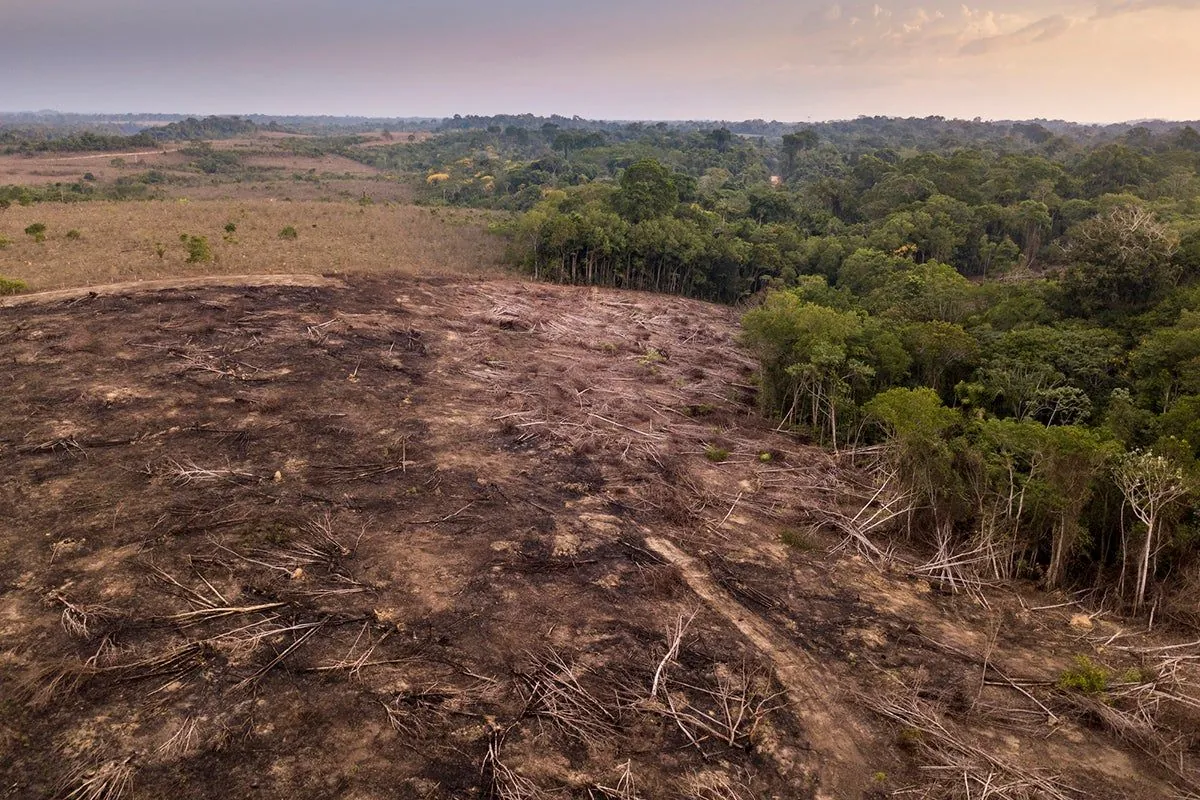Amazon's Carbon Sink Status at Risk, New Study Reveals
Research shows Amazon rainforest's carbon absorption capacity is threatened by deforestation. Despite slight increase in carbon storage since 2013, experts warn of potential shift from carbon sink to source.

A recent study by the U.S. nonprofit Amazon Conservation has raised concerns about the Amazon rainforest's future as a carbon sink. The research, released on August 12, 2024, utilized satellite data from the Planet company to assess the rainforest's carbon storage capacity.
The Amazon, covering approximately 5.5 million square kilometers and home to about 10% of the world's known biodiversity, has long been considered a crucial player in global carbon absorption. However, the study suggests that this role may be in jeopardy due to ongoing deforestation and environmental pressures.
According to the findings, Amazon trees held 56.8 billion metric tons of carbon above ground in 2022. This represents a slight increase of 64.7 million metric tons compared to 2013, indicating that the rainforest has functioned as a carbon sink over the past decade. However, researchers caution that this buffer is now "very small," with the potential for the biome to transition from a carbon sink to a source if deforestation continues unchecked.

The study highlights the critical impact of vegetation clearing on carbon absorption. When trees are cut or burned, they release stored carbon into the atmosphere. Additionally, cleared land is often repurposed for agriculture and livestock grazing, further contributing to greenhouse gas emissions.
David Lapola, a professor at the State University of Campinas not involved in the study, corroborated the findings, stating they align with other research in the field. He emphasized that while intact areas of the Amazon basin maintain positive carbon absorption, the inclusion of forest degradation alters this perspective significantly.
The Amazon rainforest, often referred to as the "lungs of the Earth," produces about 20% of the world's oxygen and contains approximately one-fifth of the planet's freshwater. Its influence extends beyond its boundaries, affecting rainfall patterns across South America and playing a crucial role in regulating the Earth's climate.
Lapola pointed out that addressing deforestation, which has already destroyed roughly 20% of the Amazon, may be more straightforward than mitigating the impacts of climate change on the rainforest. He stressed the importance of focusing on how climate change and extreme weather events could alter carbon sinks in untouched forests, noting that this challenge requires a concerted effort to reduce greenhouse emissions globally.
The Amazon's vast biodiversity, with over 40,000 plant species and more than 2,000 species of birds and mammals, underscores the urgency of preserving this unique ecosystem. As the forest has existed for at least 55 million years, its continued health is vital for maintaining ecological balance and combating climate change.
"It is crucial to turn our attention to how climate change and extreme weather events could alter the carbon sink in untouched forests. This is considerably more difficult to address as it involves a concerted effort to reduce greenhouse emission."
As the world grapples with the implications of this study, it becomes increasingly clear that protecting the Amazon rainforest is not just a regional concern but a global imperative in the fight against climate change.


































